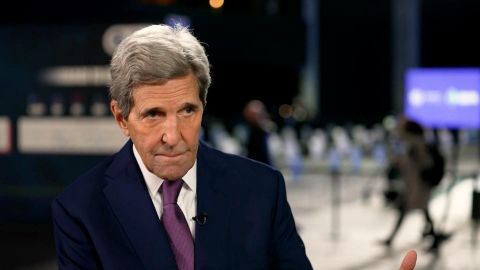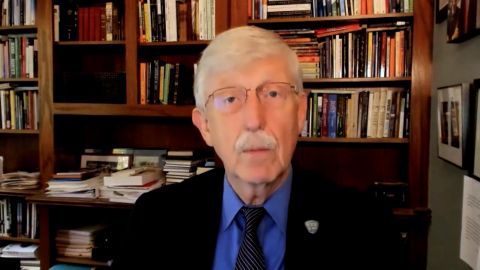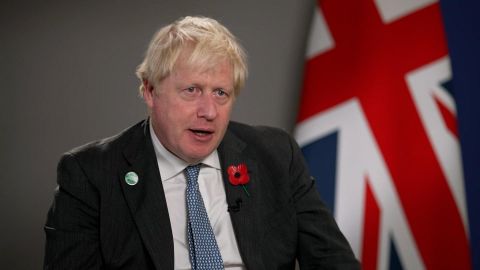Read Transcript EXPAND
CHRISTIANE AMANPOUR: So, will you then — because, clearly, I ask all the leaders who I talk to, well, what are you doing to show that you’re credible and that your nation is credible in these pledges, and it’s not just rhetoric, that it’s reality? So, as you know better than I do, there are coal — coal fields planned for, coal digging plan for Cumbria in this country. And would you say that, at this point, given everything you’re saying to me now, you would intervene to stop that?
BORIS JOHNSON, BRITISH PRIME MINISTER: I don’t have the legal powers. That’s something for local planning.
AMANPOUR: But local planning has already ruled on it and it’s come back to the government.
JOHNSON: But what we’re already saying, and if you look at what has already happened in the U.K., is, we have moved away from coal at extraordinary speed. The story of U.K. coal — don’t forget what happened in our country. We had — when I was — when I was a kid, we had 80 percent of our power came from coal. And when I was mayor of London, when you first inter — when you interviewed me last time, it was 40 percent, all right? So, between that interview, Christiane, and this one, we have gone from 40 percent to less than 1 percent, in the space of two interviews.
AMANPOUR: Less than 1 percent?
JOHNSON: Less than 1 percent. It’s roughly — it’s roughly there. And it’s going to go down to zero by 20 — going to go down to zero by 2024.
AMANPOUR: So, why not just say — as a man with goodwill after this summit that you’re hosting…
(CROSSTALK)
AMANPOUR: … and for everything you’re saying — because I understand it’s come back to the government, to the minister in charge.
JOHNSON: Because I — because we are a legal — a legally scrupulous and punctilious country. And there’s a planning decision that has to be taken. And I’m not the planning authority. But I don’t want…
AMANPOUR: But it is your government.
JOHNSON: I don’t want more coal. And our government doesn’t want more coal. And we’re going to…
AMANPOUR: And would you intervene to stop it?
JOHNSON: We will do what is legally — we’re legally able to do. But this is a planning decision. And if you look at the reality, the reality is, we have powered past coal. We will get to — we will be able to get to net zero energy production, clean energy production, by 2035. We’re going ahead with no new internal combustion engine vehicles by the end of this decade, all right? That is going to be like eight years away by Christmas, by the end of this year. This is an incredible speed to do things. The U.K.’s nationally determined contribution for reducing CO2 is on — 68 percent on 1990 levels. But the reason we have credibility, Christiane, in doing this — you asked about the credibility of the U.K.
AMANPOUR: Yes. And I have got another one on…
(CROSSTALK)
JOHNSON: … is because we have already cut CO2, by how much? Forty-four percent.
AMANPOUR: OK, that’s wonderful.
JOHNSON: Forty-four percent on 1990 levels.
AMANPOUR: But you still won’t tell me why your government won’t intervene to stop the coal in Cumbria, because it’s — I understand it’s come to Minister, Secretary, however you describe it here, Gove.
About This Episode EXPAND
Boris Johnson discusses efforts to reduce carbon emissions and the state of the pandemic in the UK. John Kerry discusses the progress being made at the COP26 summit. NIH Director Dr. Francis Collins discusses misinformation and vaccine hesitancy.
LEARN MORE


